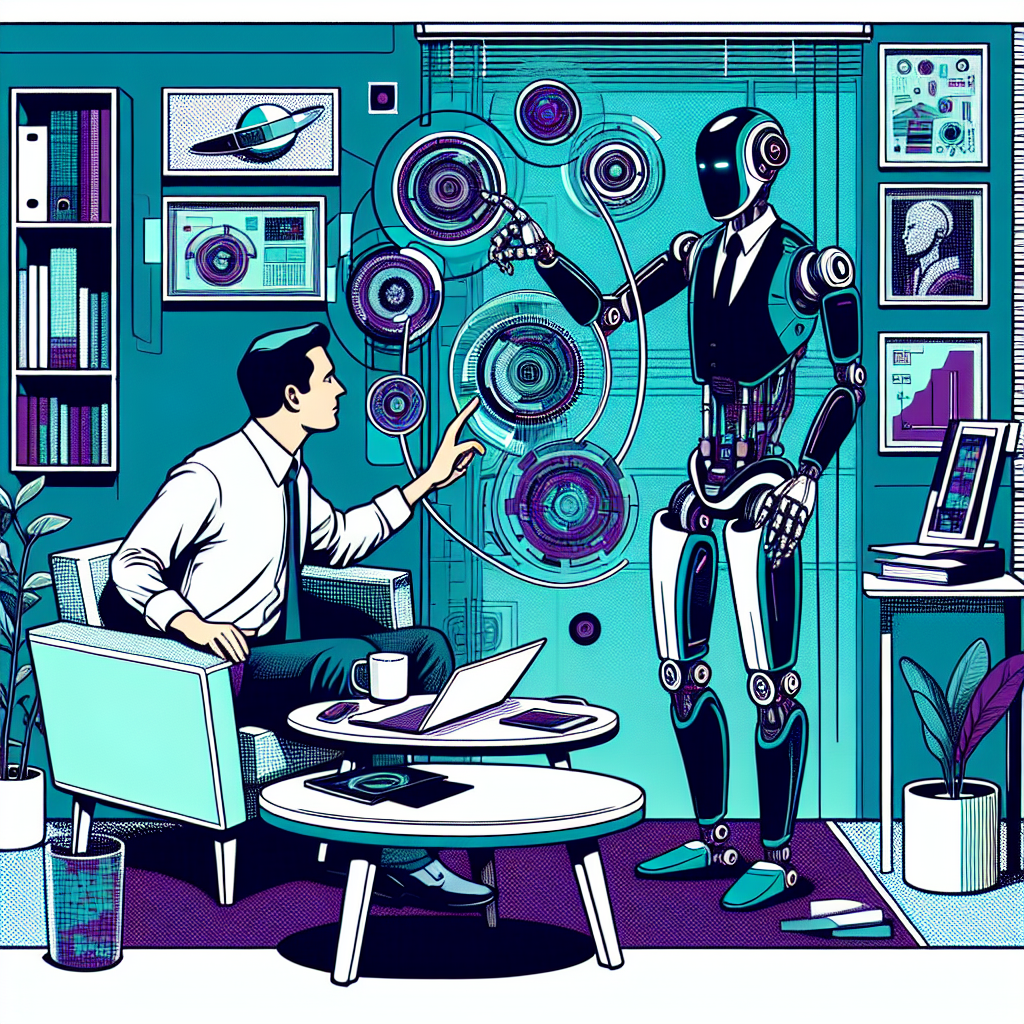The top 8 AI-powered video editing services
The increasing demand for effective and top-notch video editing tools can be attributed to the …

We stand at the precipice of a new era of intelligent assistants. With devices like Apple's Vision Pro paving the way, highly personalized AI looks set to deeply integrate into daily life.
I believe that within 5 years, most people will have their own AI assistant to help with tasks and decisions. However, developers must take crucial steps to build trust through ethical design. In this piece, I'll share my vision for how AI can enhance lives, while considering the privacy and security challenges we must thoughtfully navigate.

The Wayfair app for Vision Pro underscores the potential of spatial computing in retail. By recognizing furniture in a room, it enables intuitive shopping that meshes digital and physical spaces. Right now, such apps come across as gimmicky. But within a few years, I expect spatial computing apps to be the default.
My ideal scenario is having my personal AI automatically handshake with a shop's AI system. This would enable my assistant to guide me to relevant products using AR overlays in my glasses.
By understanding my style and price preferences, it could pre-filter options to streamline the experience. I may not even need to manually browse and purchase items. My AI could potentially handle the entire shopping journey on my behalf after confirming selections.
Of course, payment automation will require extensive trust building between me and my AI. Oversight abilities would need to be incorporated so I can monitor purchase decisions. Full autonomy over spending isn't happening in the short-term. But spatial computing could drastically simplify shopping by bridging digital and physical retail more seamlessly.
Central to personalized assistance is language technology that deeply comprehends user data and conversations. Currently, the smartest language models like GPT-3 aren't optimized to run locally on devices. But smaller models like Google's Gemini show that on-device processing is coming.
As developers rapidly iterate language models to be highly compact yet powerful, personalization potential will skyrocket.
My vision is having an AI that curates all my online data into a personalized profile. This includes emails, messages, documents - anything I grant access to. It would use this corpus to understand how I communicate, what my interests are, my purchasing habits, and so on.
With strict data oversight preventing external usage, I'd trust my AI to proactively handle tasks fitting my preferences. No ads, no surveillance, just helpful assistance.
Of course, this level of access presents huge ethical questions around privacy. But platforms like Google already possess swathes of user data; an on-device personalized assistant would at least keep it isolated from the internet. As language models advance, striking the right balance between personalization and privacy will determine mainstream adoption.

Interacting with AI is currently rather clumsy across apps and devices. But AR glasses like Vision Pro hint at more seamless integration using vision, voice and spatial inputs. With further hardware improvement, AR glasses could provide the ultimate wearable interface for AI assistance.
By understanding what I see through tracking my gaze and surroundings, my AI could overlay contextual information in my field of view. Using voice, I could converse with my assistant just as I would with another person. And as spatial mapping matures, interacting with digital objects in 3D space would become effortless.
This combination of AR and AI could enable a sci-fi-esque cyborg lifestyle. Say I'm assembling furniture - my assistant could visually guide me through each step using annotations anchored to natural objects.
It could answer natural language questions and converse to provide advice. I'd feel empowered to take on creative projects and practical tasks far beyond my natural abilities.
Seamlessly meshing assistive AI through AR technologies promises to enhance productivity and learning. But balanced regulation and ethical development is essential to avoid unwanted consequences as these immersive technologies infiltrate daily life.
Much of the tech industry has recklessly innovated without enough ethical foresight. My concern is that AI personal assistants could silently accumulate problematic biases and processing practices without sufficient oversight.
I believe technologists and businesses carrying out AI development have a responsibility to implement firm checks and balances. Independent auditing processes should be established to stress test for unfair bias, privacy violations and security weaknesses. Ethical standards need codifying into training practices and product designs.
Transparency will also help ease public skepticism as AI permeates daily routines. Adoption depends on people trusting assistants to act in their best interest.
Companies should be upfront about data practices and give users granular permission controls. And the right to human review for automated decisions made on someone's behalf should be upheld.
Navigating the responsibilities emerging alongside breakthroughs in AI assistance won't be straightforward. But establishing ethics-focused development cultures could steer these promising technologies toward societally beneficial outcomes.
We're rapidly entering a new age of ubiquitous intelligent assistance thanks to converging breakthroughs across language processing, computer vision, AR hardware and more. Personalized AI stands ready to revolutionize how we work, shop and live. But as developers realize this sci-fi future, upholding rigorous privacy and ethical standards is crucial for earning public trust and realization of AI's benefits.
I'm excited by the prospects while acknowledging the challenges ahead. By responsibly advancing AI systems, we can unlock their full potential to aid lives.
Some other posts you may like